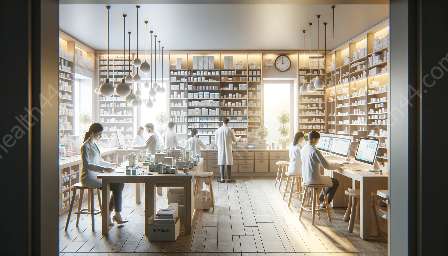Personal hygiene is a crucial aspect of maintaining a healthy and hygienic environment, especially in the context of restaurant food safety. It not only plays a significant role in safeguarding the well-being of restaurant customers but also contributes to the overall reputation and success of the establishment.
The Significance of Personal Hygiene
Personal hygiene refers to the practices and habits that individuals maintain to safeguard their health and well-being. In the context of food safety and hygiene in restaurants, the significance of personal hygiene cannot be overstated. Employees who handle food must adhere to strict personal hygiene protocols to ensure that the food served to customers is safe, clean, and free from contamination.
By maintaining proper personal hygiene, restaurant staff can minimize the risk of spreading harmful bacteria, viruses, or other contaminants that may compromise the safety and quality of the food. This, in turn, helps prevent foodborne illnesses and contributes to the positive reputation and trustworthiness of the restaurant.
Key Elements of Personal Hygiene
Personal hygiene encompasses various aspects that are essential for upholding cleanliness and safety in a restaurant environment. The following key elements are fundamental to maintaining good personal hygiene:
- Hand Hygiene: Proper handwashing is one of the most critical aspects of personal hygiene in restaurant settings. Employees must wash their hands thoroughly with soap and water before handling food, after using the restroom, and after handling any potentially contaminated items.
- Uniform and Protective Clothing: Restaurant staff should wear clean and appropriate uniforms to prevent cross-contamination and maintain a professional appearance. Additionally, the use of protective clothing, such as gloves and hairnets, further enhances food safety and hygiene.
- Respiratory Hygiene: Proper respiratory hygiene, including covering the mouth and nose when sneezing or coughing, is essential to prevent the spread of respiratory illnesses and maintain a sanitary environment.
- Personal Grooming: Maintaining clean and well-groomed hair, nails, and skin is imperative in minimizing the risk of contamination and upholding a hygienic appearance in the restaurant.
Integrating Personal Hygiene with Restaurant Food Safety
The correlation between personal hygiene and restaurant food safety is undeniable. Restaurant owners, managers, and employees must recognize that personal hygiene practices directly impact the safety and quality of the food served to customers. By integrating robust personal hygiene standards with comprehensive food safety protocols, restaurants can create an environment that prioritizes the well-being of both employees and patrons.
Regular training and ongoing education on personal hygiene and food safety are essential for all restaurant staff. This not only reinforces the importance of adhering to hygiene guidelines but also ensures that employees stay updated on the latest best practices and regulations. Furthermore, maintaining a positive work culture that values and promotes personal hygiene contributes to a collective commitment to upholding food safety standards.
Benefits of Prioritizing Personal Hygiene in Restaurants
When restaurants prioritize personal hygiene, they stand to gain numerous benefits that contribute to their overall success and reputation:
- Enhanced Food Safety: By prioritizing personal hygiene, restaurants minimize the risk of foodborne illnesses and ensure that the food served to customers is safe and free from contaminants.
- Positive Customer Experience: A clean and hygienic environment, supported by the diligent practice of personal hygiene, enhances the overall dining experience for customers and fosters trust in the establishment.
- Compliance with Regulations: Adhering to stringent personal hygiene standards ensures that restaurants remain compliant with food safety regulations and legislation, reducing the risk of fines and penalties.
- Reputation and Customer Loyalty: Prioritizing personal hygiene contributes to a positive reputation, which, in turn, fosters customer loyalty and favorable word-of-mouth recommendations.
Conclusion
Personal hygiene is an integral component of maintaining food safety and upholding the standards of cleanliness and professionalism in restaurants. By recognizing the significance of personal hygiene and its direct impact on food safety, restaurant owners and employees can work together to create a safer, healthier, and more enjoyable dining environment. Prioritizing personal hygiene not only benefits the restaurant and its customers but also reflects a commitment to excellence and responsible business practices.


